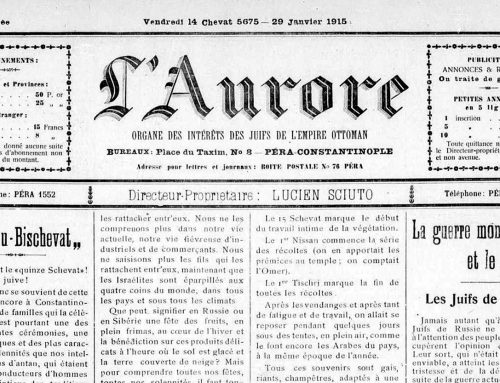
Pomponio Allegri’s “Moisés en el Monte Sinaí,” 1560-62, Catedral de Parma. Image via Wikimedia Commons.
By Steven Nadler
The Bible is traditionally regarded as “divine”. But in what sense is the divinity of Scripture to be understood? Did God literally write (or at least dictate to Moses) the Torah, along with the historical and prophetic texts that compose the books of the Hebrew Bible? According to Spinoza, this would be metaphysically impossible, since God is nothing but Nature itself, and thus not a kind of person or agent who can do things like write or dictate or even command. The authors of the Bible, on his account, were ordinary human beings, and thus the Bible is nothing but a work of mundane literature — it is, in fact, an arbitrarily selected and “mutilated” set of writings that were copied over time and again, handed down through generations and finally edited into a single anthology sometime in the Second Temple period. They are not literally divine.
However, Spinoza does want to say that there remains a sense in which the Biblical writings are special, even “divine”. What their divinity consists in is their superior ability to inspire us to true piety and acts of justice and charity toward our fellow human beings. The prophets who were the authors of the Hebrew Bible were both morally superior individuals and gifted storytellers with particularly vivid imaginations. Thus, the narratives they have composed are especially good at motivating moral behavior in readers. Their portrayal of God and tales about Him and the people with whom He establishes His covenant are morally edifying, and in this alone consists their “divinity”.
What this means is that the divinity of the Bible is not some absolute feature of the text that it has independent of anything else in the world. Rather, it is a relative property that the Bible has only because, given both its content and human nature, it is well-suited for moving people toward a certain way of life.
Might the divinity of Scripture still be an “intrinsic” feature of the text, some special tendency or power that it can have on readers regardless of whether anyone is ever actually moved by it to justice and charity? Or is it, on the other hand, a more subjective phenomenon, whereby the Bible is divine only when it actually has some morally edifying effect in some person’s mind and on their behavior? Is the Bible divine for some people (those who are actually moved by it to justice and charity) and not divine for others (those who read it but remain morally unimproved)?
Note that it also follows from Spinoza’s account that it will not be the Bible alone that is “divine”. Indeed, any work of human literature or art that has the same morally edifying effect on its readers or spectators would qualify as “divine”, and this is just as Spinoza would have it. But what if a book or a play or a painting or some other work of art has the effect of moving people even if there is no “God” character in it? In fact, what if the content of the work is ethically reprehensible, with no morally redeeming character whatsoever, and just because of this it motivates people (out of fear or disgust) to behave morally — would such a work still be “divine”?
 Steven Nadler is the William H. Hay II Professor of Philosophy and Evjue-Bascom Professor in Humanities at the University of Wisconsin-Madison. A Pulitzer Prize finalist, his most recent books include A Book Forged in Hell: Spinoza’s Scandalous Treatise and the Birth of the Secular Age (Princeton, 2011), and The Philosopher, the Priest and the Painter: A Portrait of Descartes (Princeton, 2013). Prof. Nadler will be among the participants at the Stroum Center’s May 2017 conference, “Spinoza and Modern Jewish Philosophy.”
Steven Nadler is the William H. Hay II Professor of Philosophy and Evjue-Bascom Professor in Humanities at the University of Wisconsin-Madison. A Pulitzer Prize finalist, his most recent books include A Book Forged in Hell: Spinoza’s Scandalous Treatise and the Birth of the Secular Age (Princeton, 2011), and The Philosopher, the Priest and the Painter: A Portrait of Descartes (Princeton, 2013). Prof. Nadler will be among the participants at the Stroum Center’s May 2017 conference, “Spinoza and Modern Jewish Philosophy.”
For Further Exploration
- “Was Spinoza a Heretic or a Theologian?” by Michael Rosenthal, March 2015
- Register for the Stroum Lectures featuring Jonathan Israel, taking place May 21 and 23, 2017
- Register for the “Spinoza and Modern Jewish Philosophy” Conference, taking place May 21-22, 2017







Leave A Comment